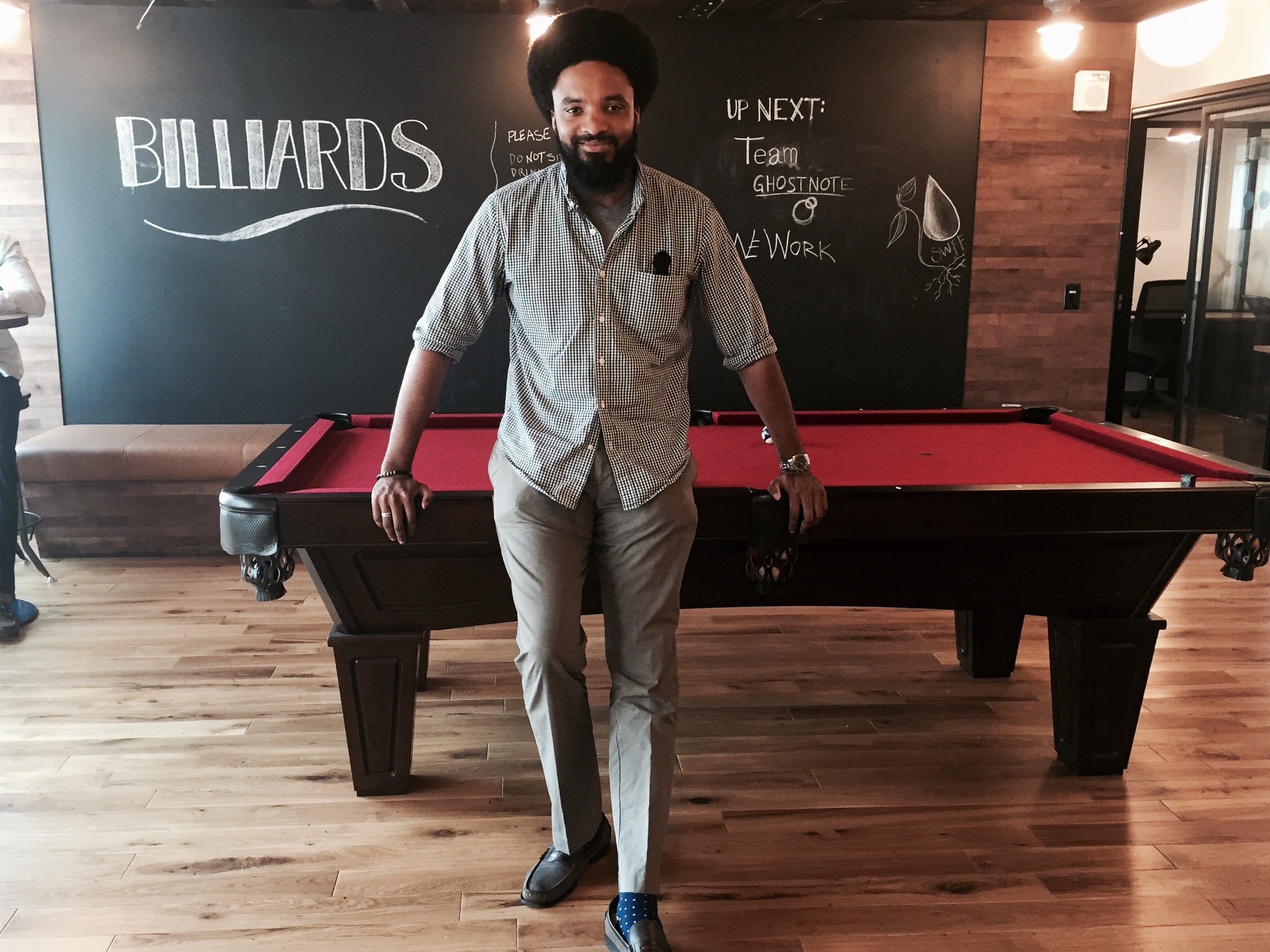 Meet Kim Gabuardi, founder of Not Just Danze Zumba studio in Toms River, NJ. Before starting her own business last May, Kim spent four years teaching Spanish to High School students in New Jersey. On July 29th, we had the opportunity to speak with her about the unique path she took to find her niche.
Meet Kim Gabuardi, founder of Not Just Danze Zumba studio in Toms River, NJ. Before starting her own business last May, Kim spent four years teaching Spanish to High School students in New Jersey. On July 29th, we had the opportunity to speak with her about the unique path she took to find her niche.
What Gave You the Inspiration to Start Your Own Business?
"I’ve really only been doing Zumba for two years and teaching for a year and a half. I was really lucky because I didn’t even have my license to teach, I was just taking classes and I fell in love with it. I also loved my instructor, who actually became a really great friend, and she decided she was going to sell her studio. She kind of nudged me and said, ‘Hey Kim, if you’re thinking about this, now’s the time. Go get licensed and maybe you’ll take over the studio!’ I thought ‘Oh, that’s so nice’ and ‘you’re crazy’ but that’s actually what ended up happening. It was great to have that little push from her."
How Was the Transition from High School Teacher to Running Your Own Business?
"It was amazing! Looking back, I didn’t think it would happen this quickly. I figured, maybe in five years, it was something I could accomplish. I never thought I could really do it in two. It was really exciting. First, the Zumba thing happened, which made me think, if I’m teaching three or four nights per week and then burning the candle on both ends, waking up to teach [high school]… I’m taking so much away from the kids and from anybody else who wanted to teach. I was never in love with teaching; I just did it as a fallback plan. I had lived in Costa Rica and when I came home, there was a teaching job available. I was like, ‘I’d be stupid to say no to a salary and benefits now’ and I just kind of got stuck. So, I said, ‘teaching is getting in the way of my fun life’. I just wanted to coach people on weight loss products, I want to be happy and I want to dance. That [realization] was what made my decision, so I cut out teaching because it was just not working for me. I thought, ‘I just can’t get passionate about this’. If I have to force myself to get up every morning and convince myself on the way to work, ‘Ok, this jobs isn’t so bad; I get home around 2:00 pm’, that’s not the way anybody should live. It was scary but I said ‘if I don’t do it now, when am I going to do it? Am I going to wait 10 years?’ Then, I’d feel like I would be really stuck."
How Did Your Friends and Family React to Your Change in Employment?
"I’ve had some interesting jobs, so people were like, ‘Oh, this is right up your alley!’ I did have a lot of support from everyone but it was a little tricky when I decided to leave my high school teaching job to take this on. That was where I met a little resistance from my family because my dad was a teacher, my mom always pushed it and my brother became a teacher… so it’s always been a pattern in my family."
What Else Do You Have Going On?
"I have a nutritional cleansing company, which I run from home and it’s actually my main source of income. It’s really big in the States now, so that’s really exciting. It’s wonderful because it goes hand-in-hand with Zumba. I feel as though it’s been a really good marriage between the two things and it’s something that I can offer my Zumba participants because most of them are coming because they want to loose weight or get in shape. It’s the perfect way to get your nutrition and your physical activity. It’s a shake-based product called Isagenix. I also work part-time as a Spanish interpreter. This is actually what I do have a master’s degree in. It’s funny because I never had a job offer before, but when I left my teaching job, I got three different companies calling me. I do it for several reasons; it gets me out of the house, it gives me a way to contribute back to the community and it keeps me mentally active."
What Direction You See Yourself Going In?
"Right now, it’s been awesome having the combination of everything because it never lets me get bored of one thing. In the same respect, I also struggle with ‘Ok, I’m doing all of these things, but am I doing any of them well enough?’ I’d have to say that I definitely see my nutritional cleansing business growing. With Zumba, I may get to the point, maybe a year or two, where I say I’m not going to be teaching anymore, but traveling and doing fundraising teaching."
What Advice Do You Have For Young Professionals?
"Don’t get stuck and don’t feel like you have to take the first thing that comes along. Do whatever speaks to you because it has to be something that you feel passionate enough about to wake yourself up in the morning and to go to work every day. Don’t get stuck in something just to pay your bills or just because your parents say you have to. Don’t ever stop dreaming; your dream when you were 7-years-old wasn’t to pay your bills. Don’t be afraid to dream and don’t get stuck. Follow your passion and don’t worry how it fits on a resume."
What Did You Want to Do/Be When You Were Little?
'When I was little, I used to dance all of the time. I used to dance for 13 years and I loved it but I gave it up to play sports in high school. I always say, that’s the only thing I regret in life. I wish I had kept doing it because I wanted to be a Knicks dancer, for the basketball team. That was always one of my dreams, as well as to dance in a rap video."
If you or someone you know is working at a job they love and would like to be featured on our blog, reach out to us at kevin@thenichemovement.com.











